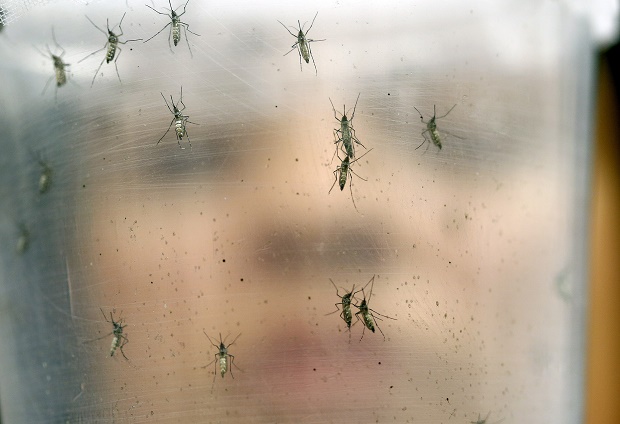
In this Jan. 18, 2016 photo, a researcher holds a container with female Aedes aegypti mosquitoes at the Biomedical Sciences Institute in the Sao Paulo’s University, in Sao Paulo, Brazil. The Aedes aegypti is a vector for transmitting the Zika virus. The Brazilian government announced it will direct funds to a biomedical research center to help develop a vaccine against the Zika virus linked to brain damage in babies. AP file Photo
LIKE dengue fever, Zika virus is primarily spread by mosquitoes, mainly the Aedes aegypti.
The virus is transmitted through mosquito bites, sexual contact, blood transfusion or by a pregnant woman to her fetus.
Infection during pregnancy can lead to serious birth defects. The baby may develop abnormality in the size of the head due to incomplete brain development called microcephaly.
People infected with the virus may develop a mild fever, skin rashes and conjunctivitis (red eyes). Others may also experience joint and muscle pains, fatigue or headaches. The symptoms normally last from two to seven days.
In the Philippines, before this year, there have been five cases of Zika infection. The first, reported in 2012, was a female foreigner who didn’t know she had it until she returned to her country.
On Sept. 5, the Department of Health confirmed the first case of Zika infection in the country since an outbreak in Singapore last month. In the next two weeks, eight new cases were reported. Inquirer Research
Sources: Inquirer Archives, doh.gov.ph